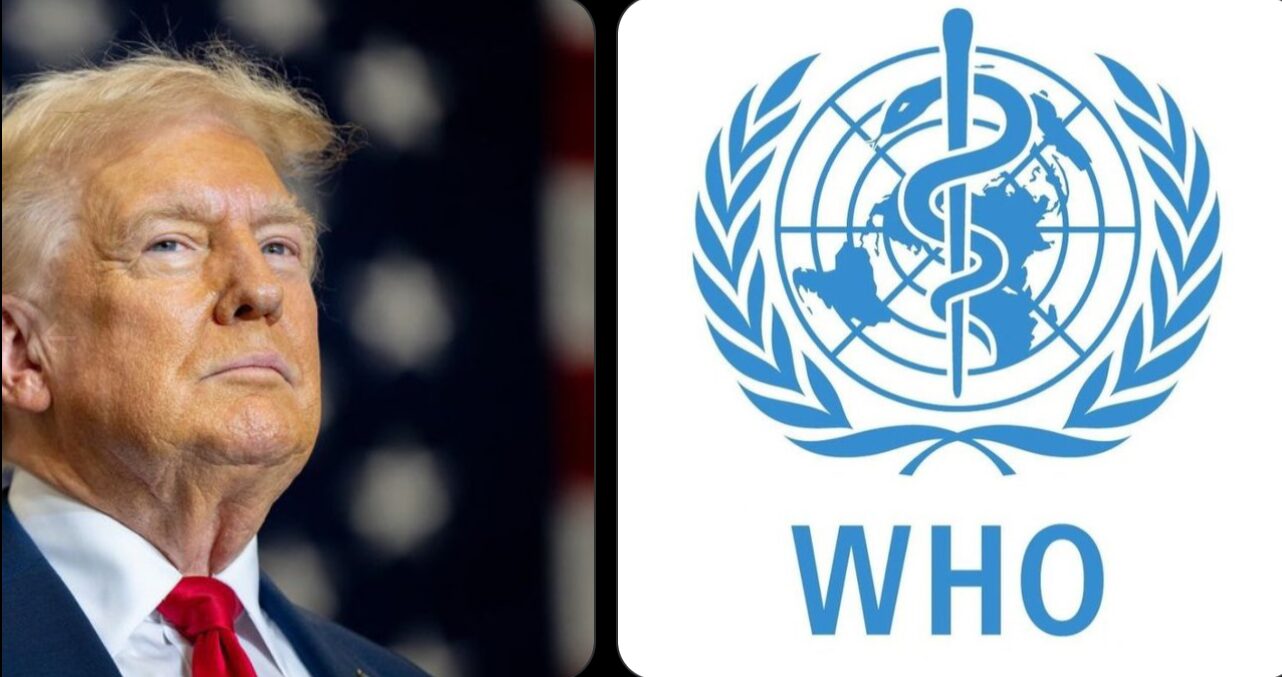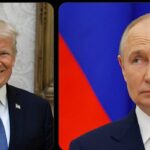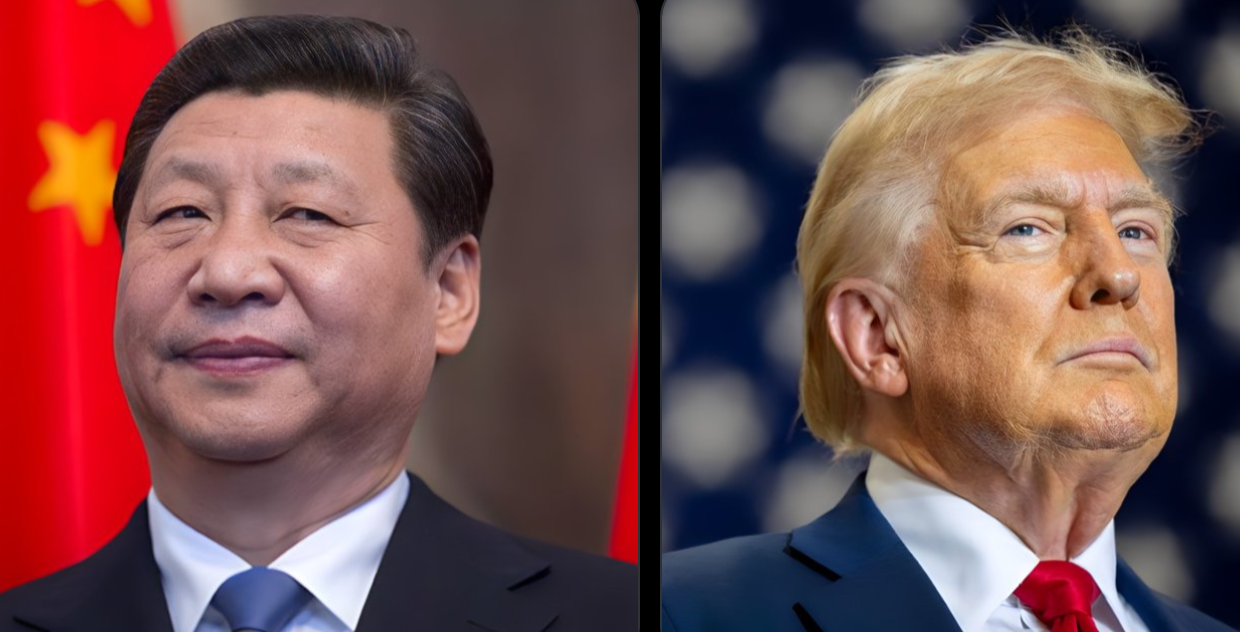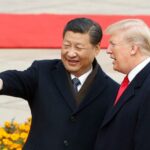President Trump officially withdraws the United States from the World Health Organization
In a bold and highly controversial move, President Donald Trump has officially announced that the United States will withdraw from the World Health Organization (WHO), a decision that has far-reaching implications for global health diplomacy and the future of international cooperation in the face of pandemics. This withdrawal comes amid the ongoing coronavirus (COVID-19) pandemic, which has reshaped the global health landscape and amplified tensions surrounding the WHO’s handling of the crisis. The U.S. decision to sever ties with the organization raises questions about the future of global health initiatives and the United States’ role in addressing health crises worldwide.
The move to withdraw from the WHO is part of a broader set of actions taken by the Trump administration to challenge international institutions and agreements that it views as unfair or ineffective. In particular, Trump’s decision to exit the WHO is a response to the organization’s response to the COVID-19 pandemic, which the president and his allies have criticized as inadequate and overly sympathetic toward China.
The Official Announcement: Reasons Behind the Withdrawal
President Trump’s administration officially notified the United Nations and the WHO of its intention to withdraw from the global health organization, following a formal 12-month exit process as outlined by the U.S. law governing the country’s relationship with the organization. The administration cited several reasons for the withdrawal, including what it perceived as the WHO’s failure to properly handle the COVID-19 crisis, its alleged bias toward China, and its handling of early information related to the virus’s spread.
Trump has repeatedly accused the WHO of being too lenient with China during the early stages of the pandemic, arguing that the organization did not act quickly enough to warn the world about the severity of the outbreak. Additionally, the U.S. president claimed that the WHO misled the public by downplaying the risk of human-to-human transmission and supporting China’s position that the virus was not easily spread.
In response to these criticisms, the Trump administration decided to halt funding to the WHO and pursue the withdrawal, asserting that the U.S. would no longer support an organization that it deemed ineffective in addressing global health issues.
The Impact of U.S. Withdrawal on the WHO
The United States has been one of the largest contributors to the WHO’s budget, contributing nearly 15 percent of its total funding. The loss of this financial support is a significant blow to the organization, which relies heavily on contributions from member states to fund its various programs and initiatives. The WHO plays a critical role in coordinating global health efforts, providing assistance to countries during health crises, and promoting public health initiatives worldwide.
Without the U.S. funding, the WHO could face challenges in continuing its efforts to combat global health crises, particularly in lower-income countries that rely on its support for healthcare infrastructure, vaccination campaigns, and disease prevention programs. This could potentially slow down the global response to other health emergencies, such as the ongoing fight against malaria, tuberculosis, and HIV/AIDS, and undermine efforts to strengthen healthcare systems in developing nations.
Furthermore, the U.S. withdrawal could signal a shift in global leadership on health issues, with countries like China and the European Union stepping into roles of greater influence within international health governance. This could alter the dynamics of global health policy, especially as countries work to address the ongoing COVID-19 pandemic and prepare for future health challenges.
Domestic Reactions to the Withdrawal
The decision to withdraw from the WHO has sparked a wide range of reactions within the United States, reflecting the polarized nature of the current political climate. Supporters of President Trump’s decision argue that the WHO has proven itself to be ineffective and that the United States should no longer contribute resources to an organization that they believe failed to protect the global community during the early stages of the pandemic.
Republican lawmakers and members of the Trump administration have voiced their support for the move, framing it as an assertion of American sovereignty and an effort to hold the WHO accountable for its actions. Some critics of the WHO have also argued that the organization has become too influenced by China and is not fulfilling its primary mission of protecting public health worldwide.
On the other hand, critics of the withdrawal, including many Democrats, public health experts, and former U.S. officials, argue that leaving the WHO during a global health crisis is a dangerous and shortsighted decision. These critics contend that the United States should be working to reform the organization from within, rather than isolating itself from global health cooperation. They emphasize that the COVID-19 pandemic is a global issue that requires multilateral collaboration, and that the U.S. should remain involved in international efforts to combat the virus and future health emergencies.
Global Reactions and the Consequences for International Cooperation
The U.S. decision to withdraw from the WHO has drawn widespread concern from the international community. Leaders from various countries, including European Union officials and the United Nations, have expressed disappointment and concern over the U.S. move. They argue that global health challenges, such as pandemics, climate change, and antibiotic resistance, require collective action and collaboration among nations.
The WHO has long been a cornerstone of international health diplomacy, and the withdrawal of the U.S., one of its most influential and well-funded members, raises concerns about the future of multilateral cooperation in the face of global health threats. Many international health experts worry that without the active participation of the United States, efforts to address global health challenges may become fragmented and less effective.
Countries like China, which has faced its own criticisms regarding the COVID-19 pandemic, may look to increase their influence within the WHO and other global health institutions in the absence of the U.S. This shift in influence could have geopolitical implications, as the WHO’s leadership on health matters is increasingly scrutinized for its handling of the pandemic and its relationship with China.
The Future of Global Health and U.S. Leadership
While President Trump’s withdrawal from the WHO represents a significant shift in U.S. foreign policy, the future of global health cooperation remains uncertain. If the U.S. remains outside of the WHO, it may seek to establish its own health initiatives or partner with other international organizations and non-governmental entities to address health challenges around the world. However, many health experts believe that the world is better served when countries collaborate through established international institutions.
The global response to the COVID-19 pandemic highlights the interconnectedness of nations and the need for coordinated efforts to address global health crises. As countries like the United States, China, and those in the European Union continue to respond to the pandemic, the role of international organizations like the WHO will remain a key point of discussion in shaping the future of public health policies.
Whether the U.S. will rejoin the WHO under a future administration or whether it will continue to pursue an independent approach to global health challenges remains to be seen. However, the withdrawal sends a powerful message about the direction in which the United States is moving regarding its engagement in multilateral efforts to address global health issues.
Conclusion: The Ongoing Debate Over U.S. Participation in Global Health Initiatives
President Trump’s decision to withdraw from the World Health Organization marks a significant moment in the history of U.S. foreign policy, with far-reaching consequences for both the United States and the international community. As the world continues to battle the COVID-19 pandemic and other global health challenges, the absence of U.S. leadership within the WHO raises critical questions about the future of global health governance and the role of international cooperation in addressing health crises. The debate over this withdrawal underscores the growing tensions between nationalism and multilateralism, and the outcome will have long-term implications for the future of global health and U.S. involvement in international organizations.

















Post Comment